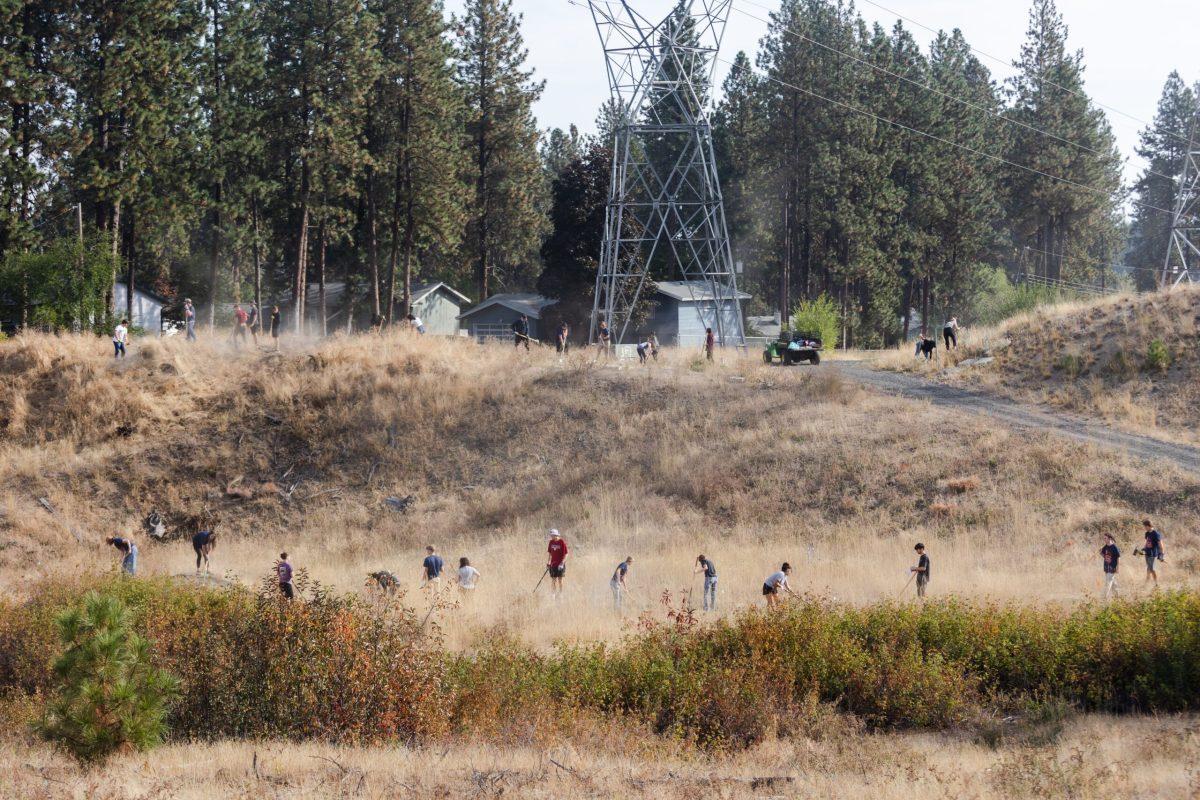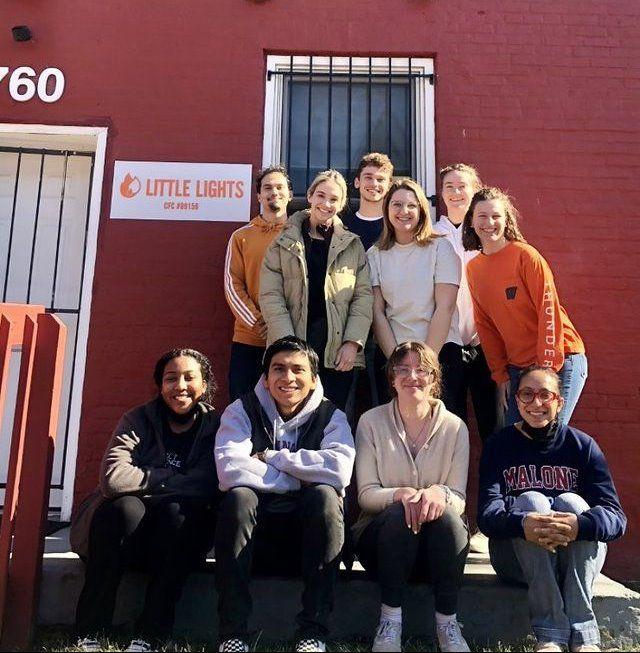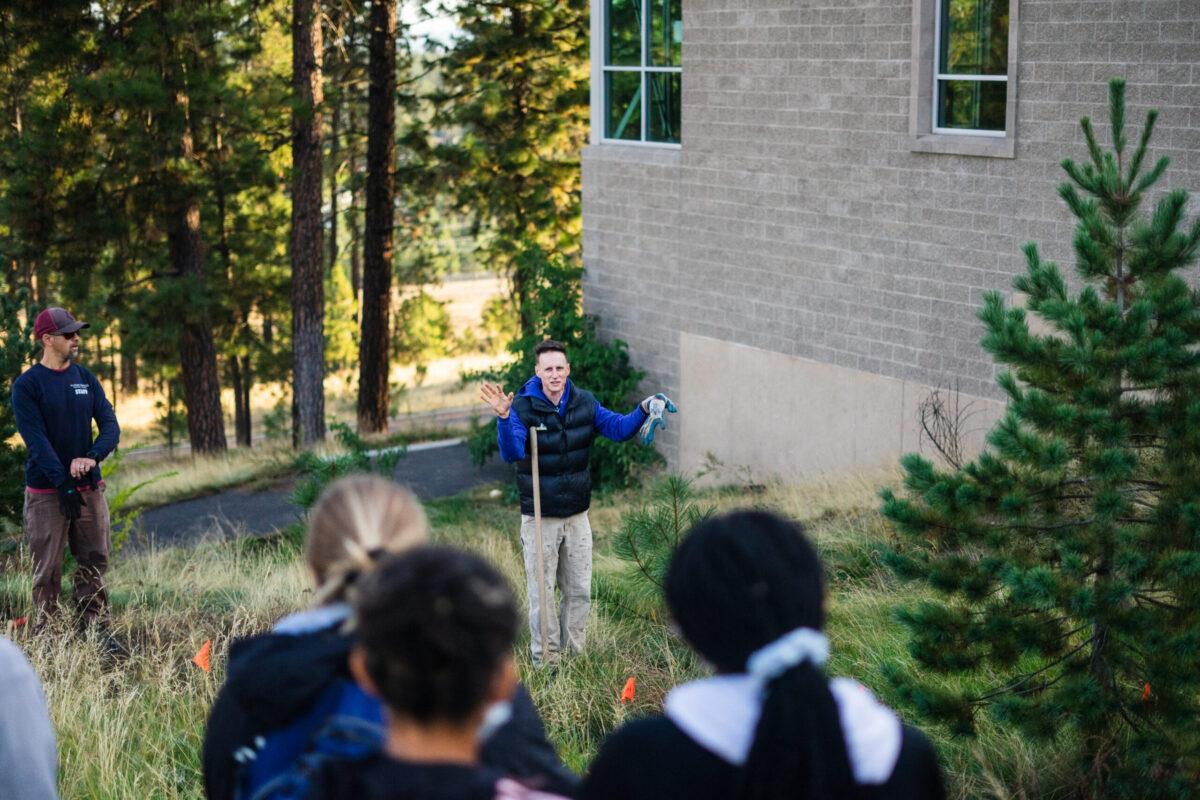
SPOKANE, WA—Just down the street from their administrative office and Transitional Living Center, Transitions, a local nonprofit working to end poverty and homelessness for women and children in Spokane, had the grand opening last Wednesday for their new permanent supportive housing program, Home Yard Cottages. Supporters and community members spilled outside of the small tent amid the gravel and cranes of the construction site, just behind the 24 nearly completed cottages.
As people congregated to socialize before the ceremony began, donations of household items like kitchen towels and blankets for the incoming residents piled up on a table at the edge of the tent. Next to that, guests could write notes for new residents to welcome them to the Home Yard Cottages. All around, the air was jovial and full of excitement as Catholic sisters, Transitions staff and supporters, and community and city organizations like Spokane Neighborhood Action Partners (SNAP) and Spokane Housing Authority gathered together to commemorate the opening of Transitions’ exciting new program.
The ceremony was started by Steven Jarvis, the chair of Transitions’ board of directors, who welcomed everyone and thanked all the people involved. Karen Stratton, a Spokane City Council member, and Matt Harrington, a representative from PNC Bank, which funded much of the project, also gave speeches on the momentous occasion.
“This is what doing better looks like,” Harrington said.
For Tuesday Durham, a resident of the Transitional Living Center since June 2017, this is an opportunity to finally have her own home after five years of jumping from shelter to shelter. It also means that she will have a place for her four children between the ages of 7 and 17 to stay.
“This place means everything to me,” Durham said with tears in her eyes, standing in front of one of the four finished cottages open to tours during the opening, “It’s so much more than a home for me. It’s about rebuilding my family.”
It is likely that Durham will receive residency in a three-bedroom single level cottage. So far, Spokane Housing Authority, who handles verification of residents, has approved one person for Home Yard Cottages. That person will move in this Wednesday, according to Edie Rice-Sauer, Transitions’ executive director. On Wednesday, Whitworth students will also be going to Home Yard Cottages during Community Building Day to help move in furniture and build garden beds. Rice-Sauer said that all cottages are expected to be done and moved into by the end of October.
Home Yard Cottages is a much-needed addition to the few affordable housing options in Spokane. With rent and housing prices going up in Spokane County, it’s getting harder for people dealing with poverty and homelessness to find housing. According to a 2016-18 SNAP Community Needs Assessment report, 45 percent of renters spend more than 35 percent of their income on rent. Additionally, for every 100 low-income individuals and families needing affordable housing in Spokane County, only 12 units are available, according to the 2015 WA State Housing Needs Assessment report.
“I think we’re all doing what we can,” Rice-Sauer said on the work nonprofits like Transitions, SNAP, Volunteers of America and Catholic Charities are doing on the affordable housing front.
“I think the challenge is there’s this mental health component that I think still needs to be addressed,” Rice-Sauer continued, “… until we really figure out how to incorporate those services, we’re just gonna continue to have really major homeless issues in downtown Spokane.” She also added that there need to be more funding streams created through local and state government to support affordable housing projects like Home Yard Cottages.
Rice-Sauer said she really hopes that Home Yard Cottages “lights the spark” for others to do similar housing projects. As for Transitions’ future steps, Rice-Sauer said that the executive committee was very excited about potentially doing another project like this.
“I don’t know if that’ll happen, I think it certainly might—once you do it, it’s like ‘Wow, we already jumped through all these hoops … we can do this,’” Rice-Sauer said.













